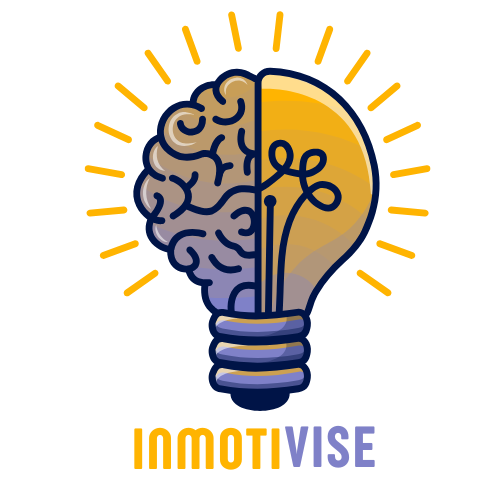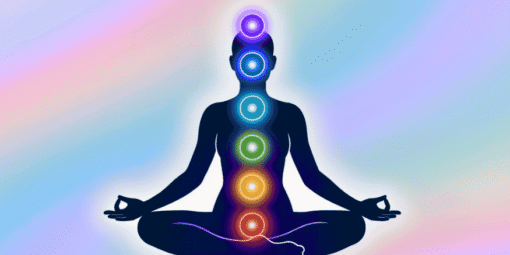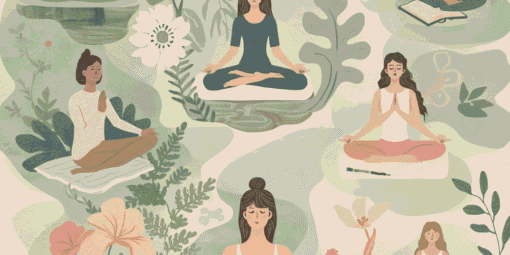1. Introduction: The Scroll That Broke You
You’re scrolling again—your thumb swipes through photo after carefully curated photo, each one glowing with joy. Engagement rings. Sunsets over white-sand beaches. Friends hugging at milestone birthdays. Vacation after vacation. And yet… as you lay there, phone in hand, your chest feels heavier than before you picked it up.
That feeling—quiet, aching, almost numb—is the realization that, in today’s image-driven world, everyone else seems happier than me. You scroll once more and ask in your head, “Why am I never happy like them?” or “Why can’t I feel proud of my life?”. This isn’t jealousy in a loud sort of way. It’s heartbreak disguised as superficial sadness.
You’re not alone. If you’ve ever felt this, this article is your invitation to unpack what’s truly happening beneath the surface—and to begin healing, without shame, comparison, or pressure.
2. What Is This Feeling Really About?
That tight feeling in your chest when you think about others’ success—it’s not just envy, and it’s not just sadness. It’s a layered emotional experience born of toxic comparison, emotional burnout, and a yearning for authenticity in a world full of filters.
The psychology behind the feeling is rooted in social comparison theory—our brains naturally assess our self-worth by comparing ourselves to others. In the digital age, this comparison has become cyclical and relentless. Every scroll becomes a test: How do I measure up? Am I good enough? When you consistently see polished, celebratory snapshots of others’ lives, your brain begins to believe those are the only versions worth striving for—washing out the value of your own everyday moments.
That feeling is also tied to low self-esteem and identity crisis. You might begin to question the core of who you are, not just what you look like. This internal narrative shapes your emotional well-being, draining joy even when life should feel good.
3. Why It Happens: Root Causes Behind the Pain
The question “Why am I never happy like others?” doesn’t just appear out of nowhere—it’s often the result of deeply rooted patterns formed by a combination of psychological, emotional, and cultural factors. One of the most powerful contributors is social comparison, which has only intensified in the age of digital connectivity. Platforms like Instagram, TikTok, and Facebook have created a culture of highlight reels, where people display the best, brightest, and most beautiful moments of their lives—while hiding the loneliness, conflict, or boredom behind the scenes. This creates an illusion that happiness is constant for others and elusive for you.
But what’s underneath comparison is often a crisis of self-worth. When you measure your progress, joy, or beauty against someone else’s curated life, you strip away the truth of your own journey. Slowly, your inner dialogue becomes harsh: “Why can’t I be like that? Why is my life so plain?” These thoughts are seeded by envy and insecurity, but they’re watered by a culture that equates attention with success and appearance with happiness.
There’s also a deeper emotional truth—this pain often stems from unmet needs or emotional wounds. If you’ve ever felt unseen, unloved, or unimportant in your earlier years, you may seek constant validation now, subconsciously hoping that someone else’s life blueprint will bring you peace. But it never does. What you truly crave isn’t their life—it’s to feel whole in your own. Without realizing it, you might be chasing someone else’s happiness, thinking it will fix the emptiness within.
4. The Emotional Toll: How This Comparison Affects Your Daily Life
The emotional toll of constantly feeling like everyone else is happier can quietly unravel your inner peace. It’s not always explosive—it’s subtle and persistent, showing up in small moments of your day that add up to deep weariness. You might wake up already feeling tired, even after a full night’s sleep. Not physically, but emotionally. Your mind starts the day measuring how far behind you are, instead of how far you’ve come. This is the hidden weight of emotional burnout and low self-esteem caused by toxic comparison.
Comparison doesn’t just affect your mood—it impacts your mental clarity, motivation, and even relationships. You may begin to withdraw from people you once loved being around, not because they’ve changed, but because being near them makes you feel inadequate. You might doubt the sincerity of your own happiness: “Did I really enjoy that moment, or was I just trying to keep up?”
Your sense of identity begins to blur. You start editing yourself to match what you think will be admired or accepted. And in doing so, your authentic joy becomes muted. Even achievements that once brought you pride now feel insignificant when compared to someone else’s “bigger” success. You might say yes to things just to appear engaged, when inside, you’re quietly asking, “Why does my life feel so empty even when I do everything ‘right’?”
Over time, this ongoing disconnection erodes your psychological resilience—the ability to bounce back, to dream, to believe in your own path. Left unaddressed, it can spiral into emotional exhaustion, where joy feels foreign, and numbness becomes your norm. But knowing this impact is the first step in taking your power back
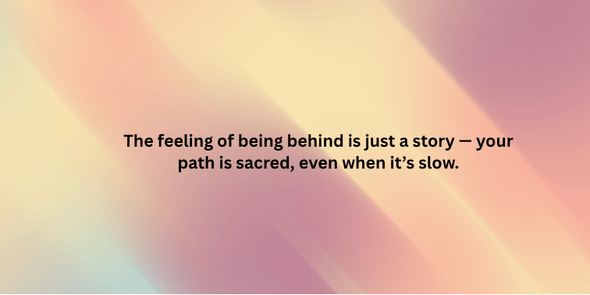
Want to read more about How to Deal with Jealousy in Life, Love, and Work?
5. How to Be Happy Again: Gentle Recovery Strategies
Healing from comparison is not about forcing positivity. It’s about reclaiming your life through small, emotionally aligned steps that reconnect you to your own sense of joy.
Strategy 1: Unfollow to Free Your Mind
Unfollow accounts that stir feelings of inadequacy. This isn’t avoidance—it’s selective exposure. Surround yourself with authenticity rather than perfection.
Strategy 2: Name Your Triggers with Compassion
When envy sneaks in, pause and journal: “What exactly triggers this feeling? Is it ambition? Fear of failure? Feeling stuck?” Naming it gives you control.
Strategy 3: Rekindle Small Joys
Celebrate joy in ordinary moments—morning light through your window, petting your dog, or brewing tea. These tiny rituals are your lifelines back to presence and peace.
Strategy 4: Define Your Own Success
Ask yourself: “What values am I living for?” When you define personal milestones by your standards—not others’—you anchor your joy in your own journey.
Strategy 5: Embrace Gratitude Without Cynicism
List at least three things you are genuinely grateful for each day. Not upwards comparison. Just present-moment appreciation—tiny steps toward rebuilding emotional momentum.
Strategy 6: Create, Don’t Just Consume
Spend time doing things that light you up—writing, painting, cooking, gardening. When you actively express your joy, even quietly, you reaffirm your worth.
Strategy 7: Reframe Your Inner Dialogue
When you think, “I’m behind,” respond: “My timeline is unique. I don’t owe anyone else stage perfection.” Words hold power—choose genuinely kind ones toward yourself.
6. Motivational Support: What You Need to Hear Right Now
If you’re reading this, there’s a part of you that’s tired—not just physically, but soul-deep weary from trying so hard to feel okay when you don’t. Maybe you’ve smiled through a day that felt empty. Maybe you’ve clapped for others while wondering when it’ll finally be your turn. You’ve worked, given, tried, shown up—and still, happiness feels like a guest that visits everyone but you.
So hear this, truly: You are not broken. You are not behind. You are not invisible.
The joy you’re missing isn’t something someone else stole—it’s something you’ve temporarily lost sight of beneath the weight of expectations and comparison. But it’s still inside you. And you don’t have to earn it back with achievements, perfection, or performance. You reclaim it by coming back to yourself—your messy, beautiful, still-growing self.
Let this be your emotional lifeline:
“You don’t need to chase anyone else’s timeline. Your joy is valid, even if it doesn’t look like theirs.”
“Happiness starts when you stop editing yourself for acceptance and start embracing your wholeness.”
“The softest joy often comes in the quietest moments—when no one’s watching, and you’re finally at peace with being you.”
There’s a path back to joy, and it doesn’t require fixing yourself—it only asks that you stop abandoning yourself. Every step you take toward inner kindness, toward stillness, toward truth—is a step toward healing. And you don’t need to do it perfectly. You just need to begin.
- “You don’t need to catch up to anyone — your happiness isn’t on a schedule.”
- “Comparison drains the soul of its spark — joy begins where judgment ends.”
- “Everyone’s life has a backstage. Stop comparing your raw moments to their final cut.”
- “The feeling of being behind is just a story — your path is sacred, even when it’s slow.”
- “You are not falling behind. You are unfolding, becoming, healing in your own time.”
- “Real joy is quiet. It lives in ordinary moments — not in the applause of others.”
- “Happiness isn’t found in someone else’s timeline. It grows when you choose yourself.”
- “You’re not meant to fit into someone else’s version of happiness. Create your own.”
- “The joy you’re seeking isn’t out there — it’s the version of you you’ve been hiding.”
- “Your value was never meant to be measured in likes, shares, or someone else’s spotlight.”
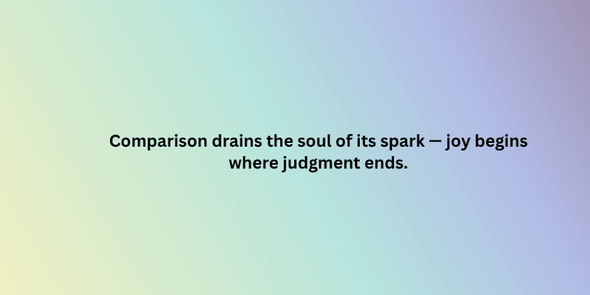
7. When to Reach Out for Support
There’s strength in self-awareness, but there’s even more in asking for help when your emotional weight becomes too heavy to carry alone. In a culture that celebrates independence and constant positivity, it can feel shameful to say, “I’m not okay.” But that shame is a lie. Needing support isn’t a weakness—it’s a sign that you’re honoring your humanity.
If you find yourself feeling persistently numb, overly anxious, tearful without clear reason, or losing interest in things you used to enjoy, these are signs that your emotional well-being may be calling for deeper care. You don’t need to be in crisis to deserve connection. Sometimes, even quietly saying to a friend, “Hey, I’ve been struggling lately,” can lift a weight from your chest.
Support can look like many things. You might:
- Open up to a trusted friend or partner who listens without trying to fix you.
- Begin journaling consistently to process your thoughts, using guided prompts or just raw reflection.
- Seek a licensed therapist to help untangle the emotional knots shaped by comparison and self-doubt.
- Use free mental wellness apps that offer daily affirmations, reflection tools, and mood tracking.
The important part is that you give yourself permission to be supported. You don’t need to heal alone in silence. You are worthy of comfort, clarity, and care—and there are people and resources ready to meet you in that space.
8. Final Thoughts: Your Path to Authentic Joy Begins Now
You are not broken. You are not forgotten. You are not falling behind. You are gently reclaiming your life from a trap of comparison that wasn’t yours to live.
Joy returns not with declarations or forced performance, but through tiny intentional moments: choosing to create over scroll, honoring your values over appearances, and giving grace to your own pace over others’ timelines.
You can stop chasing others’ highlight reels now. And start reclaiming finding happiness in your own life, one deliberate breath at a time.
Your journey is your own—and that makes it powerful. Your joy doesn’t have to be loud. It just needs to be real. And it’s never too late to feel it again.
If you’d like curated emotional wellness reads, try our posts on building self-worth, overcoming loneliness in the digital age, and healing from emotional comparison.
9. FAQs: Clarifying Your Path
Q: Why do I feel sad when others are happy?
This often results from subconscious comparison and self-wounding narratives. In a social media age, it’s easy to mistake simultaneity for sufficiency.
Q: Can I feel joy again after years of numbing myself?
Absolutely. Healing is gradual. With consistent alignment—grateful noticing, identity-focused living, emotional self-compassion—joy finds its way back.
Q: How can I stop comparing my life to others?
Begin by stepping back from comparison triggers—social media, “highlight-only” relationships, or unbalanced comparisons. Insert daily rituals that reflect your life, not someone else’s version of it.
Q: What’s the first step toward happiness again?
Trusting your internal value. Even if you don’t feel worthy yet, you can start acting from self-compassion—unfollow negative comparison, acknowledge how you feel, and say, “I choose my own pace.”
Read more Quotes About Friendship: Trust, Love and Deep Connection
